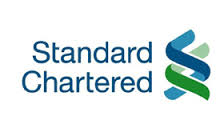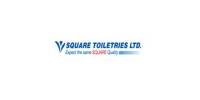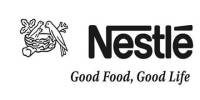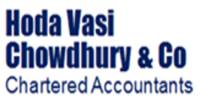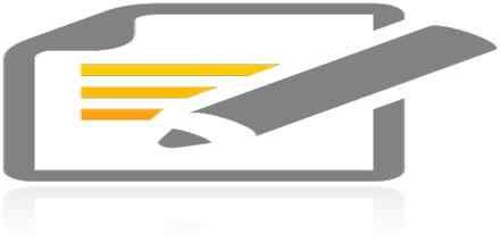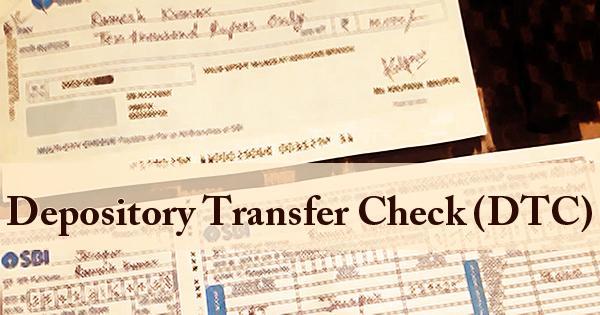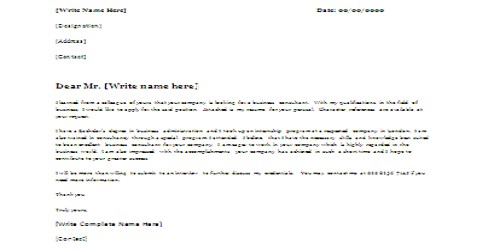Business Operation of Standard Chartered Bank in Bangladesh
Standard Chartered Bank (SCB) PLC is a multinational bank and a financial service group which is incorporated in the UK with its Headquarters at 1 Alderman buries Square, London. By serving the world for 150 years, it now spans in the developed and emerging economies of the world. The group operations are mainly concentrated in Asia, Africa and the Middle East and its operation is segmented under six regions: LTK, Europe, Middle East, South Asia, South East Asia and the USA. SCB plays an invigorating role in linking the world economic trend with different services under the big umbrella of retail banking, corporate banking, private banking, SME banking and SAADIQ Islamic banking. Globally, the SCB group owns an array of key resources that includes; a network of 600 offices in more than 50 countries; a staff of about 89,000 of 115 diverse nationalities helps to energize creativity and innovation, supporting the development of exciting new services and products for the worldwide customers. At the global level, SCB operates with some key strategies that are quite unique to other banks such as; to build and grow strong businesses in Middle East, South Asia and Far East Asia. There vision for work, here in this regions is, building unique position and image among the target customer segment and being responsive to the needs and serve the needs better than the competitors.
Presently at this time of age Standard Chartered bank is at the centre of one of the greatest challenges of time; their concentration is on how to generate enough growth and jobs for 7 billion people, and counting. With their firm footprint in Asia, Africa and the Middle East, they are trying to meet the challenges by enabling trade and investment to flow to, from and within some of the fastest-growing markets of the world.
Over the last decade, SCB has continuously served their clients and customers, shareholders and communities. From 2002 to 2012, they have increased their lending from $57 billion to $289 billion, increased the corporate tax contribution almost five fold and tripled their staff to over 89,000.
In Bangladesh Standard Chartered Bank has started their operation in Chittagong, 1947. In the year of 2000, it acquired ANZ Grind Lays bank for $1.34 billons. Now the bank serves with the consumer banking and wholesale banking, managing 26 branches all over the country.
HISTORY OF STANDARD CHARTERED BANK IN BRIEF:
SCB has a history of more than 150 years. The name Standard Chartered has came from two distinct original banks. The portions “STANDARD” and “Chartered” stems from the “Chartered Bank” of India, Australia and China; the rest came from the “Standard Bank” of British South Africa.
Chartered bank was established in 1853 by a Royal Charter granted by Queen Victoria of England. The main person behind the Chartered Bank was a Scot, James Wilson. He kind of foresaw the advantages of financing the growing trade links with the areas in the East, where no other financial institution was present that time widely.
EXPANSION OF STANDARD CHARTERED BANK:
- Expansion in Africa and Asia:
The Standard Bank opened for business in Port Elizabeth, South Africa, in 1863. It followed a policy of expansion and soon amalgamated with several other banks including the Commercial Bank of Port Elizabeth, the Coles berg Bank and the British Kaffarian Bank. The Standard Bank was prominent in the financing and development of the diamond fields of Kimberly in 1867 and later extended its network further north to the new town of Johannesburg when gold was discovered there in 1885.
- Standard Chartered in the 1990s
Within the period of apparent retrenchment during the First and Second World War Standard Chartered Bank expanded its network, re-opening in Vietnam in 1990, Cambodia and Iran in 1992, Tanzania in 1993 and Myanmar in 1995. Standard Chartered now has an office in every country in the Asia Pacific Region with the exception of North Korea.
In 1998 Standard Chartered concluded the purchase of a controlling interest in Banco Exterior de Los Andes (Extebandes), an Andean Region bank involved primarily in trade finance.
- Standard Chartered in Middle East & South Asia;
The MESA region performed well in year 2002. The region accounts for approximately 11% of the group’s revenues. The integration of Grind Lays was successfully completed and the group is now one of the leading international banks in each of its chosen markets in the region. The contribution of the Group’s business in the United Arab Emirates reflects the businesses.
Standard Chartered now holds leadership positions in most of its key product segments in the UAE. The average number of employees in the Middle East and other South Asia region in 2002 was 2995.
- Standard Chartered in Hong Kong:
Hong Kong remains the Group’s largest market, generating one third of the Group’s revenue. They have a network of 74 branches. Standard Chartered has been transacting business in Hong Kong since 1858 and they issue bank notes there. In 2002, Standard Chartered became the first FTSE 100 Company to launch a new dual primary listing in Hong Kong.
- Standard Chartered in Singapore:
Standard Chartered has been doing business in Singapore for 144 years and has 20 branches and offices, the largest branch network among foreign banks. The business in Singapore accounts for approximately 11% of the Group’s revenues. Standard Chartered has Qualifying Full Bank Status, which has enabled expansion of the distribution network. In 2002, Asian banker magazine named Standard Chartered the ‘Best Retail Bank in Singapore’.
- Standard Chartered in Malaysia:
Standard Chartered is the oldest bank in Malaysia, where there is a network of 29 branches. The group continues to expand its Shared Service Center that was opened in 2001 and carries out operations and processing activity. The Centre in Kuala Lumpur has contributed significantly to improvements in the Group’s processing and service efficiency.
- Standard Chartered in Africa:
Standard Chartered continues to be one of the leading banks in sub Saharan Africa. The group offers consumer banking and wholesale banking services in 13 African countries with a network of 149 branches and offices. Standard Chartered recently launched operations in the Ivory Coast and re-entered Nigeria. The average number of employees in 2002 was 5009.
- Standard Chartered in United Kingdom and the United States of America:
Businesses in the United Kingdom and the Americas provide services to leading multinationals and major financial institutions, which trade or invest in Asia, Africa, the Middle East and Latin America. In 2003, the businesses in the Americans were extensively restructured to improve efficiency for future growth. The Group also operates a growing off shore banking business based in Jersey. The average number of employee in the United Kingdom and America in 2002 was 2098.
- Standard Chartered in India Region:
Standard Chartered is the largest international bank in India and, following successful completion of the integration of Grind Lays, have a combined customer base of 2.4 million in Consumer Banking and over 1200 corporate customers in Wholesale Banking. The shared service centre in Chennai continues to develop rapidly as more services and processes are migrated from other countries. The average number of employees in the India region in 2002 was 5251.
- The Acquisition of ANZ Grind Lays by Standard Chartered:
The main idea behind acquisition and merger is making an investment and usually involves more than mere cash. When two separate legal entities merge every organization aspect of both companies is expected to change be it internal or external. Such management decision is taken for a variety of reasons but the ultimate aim is to add up to shareholder’s wealth. For banks operating in the consumer and wholesale banking sector, earning depends largely on the interest margin as well as the service charges.
- Standard Chartered Bank in Bangladesh
The Chartered Bank started operating in Bangladesh in 1947, opening a branch in Chittagong. The branch was opened mainly to facilitate the post-war reestablishment and expansion of South and Southeast Asia. The Chartered Bank opened another branch in Dhaka in 1966, where it is still headquartered. After the merger of the Chartered Bank with the Standard Bank in 1969, the Standard Chartered Bank took up a program of expansion. It increasingly invested in people; technology and premises as its business grew in relation to the country’s economy. In 1993, there was an organizational re-structuring, which led to a substantial expansion of the Bank’s business. Today the bank has in total four branches in Dhaka apart from the Chittagong branch, including an offshore branch at the Savar Export Processing Zone.
BUSINESS OPERATIONS OF STANDARD CHARTERED BANK; IN BANGLADESH:
The IBG of Standard Chartered Bank offers a wide variety of products and services to the banks and financial institutions. It has global links with leading banking institutions and agency arrangements through its network of offices in 40 countries.
The Bank offers a full range of clearing, payment collection and import-export handling services. The bank offers foreign missions, voluntary organizations, consultants, airlines, shipping lines, and their personnel the following financial services:
- Current accounts in both Taka and other major foreign currencies
- Convertible Taka accounts (these funds are freely convertible to major international currencies)
- Local and foreign currency remittances etc.
SCB Bangladesh has two main functional areas to perform its business.
Those are:
- Business
- Support
SCB Bangladesh can be divided into the following business areas
- Consumer banking
- Wholesale banking
- Treasury
- Institutional banking
- Custodial service
In our country, corporate banking division has historically contributed more to revenue and profits compared to customer banking division.
The support division of SCB Bangladesh contains the following departments:
- Operations
- Finance, administration and risk management
- Information technology
- Human resources
- Legal and compliance
- External affairs
- Management
Products and Services of the Bank:
Standard Chartered Bank has highly qualified professional staff members who have the capability to manage and meet all the requirements of the bank. Every account is assigned to an Account Manager who personally takes care of it and is available for discussion and inquiries, whether one writes, telephones or calls. The services of the Bank are personalized and backed by advanced computerization.
Consumer Banking
Superior retail banking services comprising a wide range of deposit and loan products are offered by the Standard Chartered Bank to its individual customers. The Consumer Banking division constantly faces challenges and meets them by developing new products and services to fulfill the specific requirements of local TU Bank offers a 24-hour service in Bangladesh through its Moneylink ATM network and Phone-link Phone Banking services.
Corporate Banking Group:
Standard Chartered bank offers its local customers a wide varity of financial services. All the accounts of corporate clients, that mainly comprise top local and multinational companies operating in Bangladesh, are assigned a RM or Relationship Manager; who maintains regular and close contact to serve the needs.
The expertise of the financial institution and treasury division is available whenever its needed. The unique off shore banking unit (OBU) in Savar offers a full range of facilities to overseas investors, and recently that Savar Branch have expanded many of its activities. The offerings to the customer:
- Project finance
- Investment consultancy
- Syndicated loan
- Bonds and guarantees
- Local and international treasury products
Cash Management Operations:
Standard Chartered is highly recognized as a leading cash management supplier across the emerging markets. Their Cash Management Services cover local and cross border payments, collections, information management, account services and liquidity management for both corporate and institutional customers.
Operations:
- Manage the availability of client’s funds efficiently
- Monitor and control the movement of funds
- Settle payments to client’s suppliers in a timely and cost-effective manner.
- Capture every investment opportunity to increase income
- Investigating the source of the funds
Trade finance:
Standard Chartered possesses 140 years of experience in Trade Finance. The bank has presence in over 40 countries, in addition to our extensive network of overseas banking partners and correspondents. The bank obtained ISO9002 accreditation for its quality service. Dedicated trade and payment systems are in place to make sure that every transaction, even across different currencies, will be professionally executed.
Custody and clearing services:
Standard Chartered Bank’s Custody and Clearing Services’ combination of local market expertise, with the security offered by being an integral part of one of the world’s leading international banks has garnered an impressive client base which includes leading North American, European and Asian institutions.
Electronic banking:
Standard Chartered offers the client a comprehensive range of Cash Management services. Whether it is a financial institution, a multi-national corporation or a domestic company, Electronic Banking application has the capability to support full range of Cash Management reporting and transaction initiation needs. It provides the secure, reliable and effective link between the client and client’s accounts anywhere across the Standard Chartered network.
Lending:
Provides working Capital Loan to help the client meet their financial obligations and operate effectively, the bank offers assistance in the form of working capital loans, overdrafts, term loans (including real estate loans and other secured debt), backstops and revolvers.
Two types of lending facility are provided to client at present:
- Loan Structure and Syndication: this facility helps borrowers to meet substantial financing needs by enabling them to reach the banks most interested in lending to their particular industry, geographic location and structure through syndicated debt offerings.
The Treasury division
The treasury division of the Standard Chartered Bank has a centralized dealing room in Dhaka and consists of the following two areas:
- Structured finance: Standard Chartered provides Commodity, Structured Trade and Export Finance global group service. Many financial institutions have been retreating from these markets. Standard Chartered Bank stands out as the only bank which is committed to financing Commodity and Export Credit Agency supported trade flows.
Features:
- Access to long establish expertise in Commodity Finance and willingness to accept the credit risks associated with approved counterparties.
- Access to structuring skills for emerging markets medium term financing and to country limit availability for many countries in Asia, India, Middle East, Africa and Latin America.
- Presence on the ground in many emerging markets which facilitates transactions through local knowledge and the provision of local commercial banking infrastructure.
- Track record and capability for global arranging, underwriting and syndication in the whole area of Structured Finance.
Foreign Exchange: The Reuters monitors placed in the Treasury Division give continuous updates on exchange rate movements as well as ready access to market information. The Foreign Exchange service includes:
Foreign exchange contracts for the same day value, next day value or spot transactions
- Forward Contracts: Foreign exchange contracts to hedge exchange risks.
- Cross Currency Contracts: The customers can trade a wide range of currencies.
